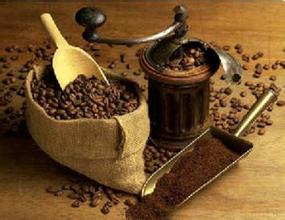Boutique coffee beans the best production environment for Hawaiian Kona coffee
Hawaiian Kona coffee mellow and sour coffee beans, unique growth and climatic environment make Hawaii Kona perfect flavor: Hawaiian beach, monsoon and volcanic flavor.
Kona coffee beans produced in Hawaii are the most beautiful coffee beans in the world. they are extremely full and shiny. Kona coffee beans are evenly shaped, have a strong sour and sweet taste, and taste wet and smooth. Growing on volcanoes, Hawaii's unique volcanic climate makes Kona coffee unique aroma and high-density artificial farming, so each bean can be said to be a spoiled "lady". Beautiful, plump and baby-like skin.
Kona Coffee is fresh, crisp, medium-bodied, slightly sour and full-bodied, with a long finish. Most rarely, Kona Coffee has a blend of wine, fruit and spice, as fascinating as the colorful colors of this volcanic archipelago. Generally speaking, the taste of Kona coffee belongs to a relatively mild category, so that some people think that this gentleness is synonymous with insipid, that Kona is too refreshing and too simple. But if you are the kind of person who must slowly get into the state with the aroma of coffee before tasting it, Kona is the right coffee for you. Because it is not as mellow as Indonesian coffee, not as full-bodied as African coffee, nor as rugged as Central and South American coffee, Kona coffee is like a girl in the Hawaiian sun breeze, fresh and natural, lukewarm.
The excellent quality of Kona coffee benefits from the suitable geographical location and climate. Coffee trees grow on the slopes of volcanoes, and their geographical location ensures the altitude needed for coffee growth; the dark volcanic ash soil provides the minerals needed for coffee growth. The climatic conditions are very suitable. In the morning, the sun gently passes through the air full of water vapor. In the afternoon, the mountains will become more humid and foggy, and the white clouds surging in the air are natural umbrellas for coffee trees. And the evening will become sunny and cool, but there is no Frosts Descent. Because of the suitable natural conditions, the average yield of Kona coffee is very high, reaching 2240 kg per hectare, while in Latin America, the yield of coffee per hectare is only 600kg ~ 900kg.

Important Notice :
前街咖啡 FrontStreet Coffee has moved to new addredd:
FrontStreet Coffee Address: 315,Donghua East Road,GuangZhou
Tel:020 38364473
- Prev

Boutique coffee beans Colombian coffee latest information
Colombian coffee (Cafe de Colombia), which originated in Colombia, is one of the few individual coffees sold in the world under the name of the country. In terms of quality, it has won praise unmatched by other coffee. Compared with other producing countries, Colombia is more concerned with developing products and promoting production. It is this, coupled with its superior geographical and climatic conditions, that makes Goran
- Next

Costa Rican coffee latest coffee information Costa Rican coffee has a unique flavor
The coffee beans produced at the high latitudes of Costa Rica are famous in the world, full-bodied, mild in taste, but extremely sour. The coffee beans here have been carefully processed, which is why they have high quality coffee. Located in the south of SanJos, the capital of Tarasu, Costa Rica is one of the most valued coffee growers in the country. Tarrazu World
Related
- Detailed explanation of Jadeite planting Land in Panamanian Jadeite Manor introduction to the grading system of Jadeite competitive bidding, Red bid, Green bid and Rose Summer
- Story of Coffee planting in Brenka region of Costa Rica Stonehenge Manor anaerobic heavy honey treatment of flavor mouth
- What's on the barrel of Blue Mountain Coffee beans?
- Can American coffee also pull flowers? How to use hot American style to pull out a good-looking pattern?
- Can you make a cold extract with coffee beans? What is the right proportion for cold-extracted coffee formula?
- Indonesian PWN Gold Mandrine Coffee Origin Features Flavor How to Chong? Mandolin coffee is American.
- A brief introduction to the flavor characteristics of Brazilian yellow bourbon coffee beans
- What is the effect of different water quality on the flavor of cold-extracted coffee? What kind of water is best for brewing coffee?
- Why do you think of Rose Summer whenever you mention Panamanian coffee?
- Introduction to the characteristics of authentic blue mountain coffee bean producing areas? What is the CIB Coffee Authority in Jamaica?

